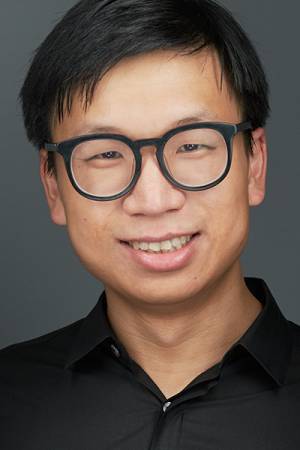
Carnegie Mellon University
3:30 pm to 4:30 pm
Abstract: The power and promise of deep generative models such as StyleGAN, CycleGAN, and GauGAN lie in their ability to synthesize endless realistic, diverse, and novel content with user controls. Unfortunately, the creation and deployment of these large-scale models demand high-performance computing platforms, large-scale annotated datasets, and sophisticated knowledge of deep learning methods. This makes it a process not feasible for many visual artists, content creators, small business entrepreneurs, and everyday users. In this talk, I describe our recent efforts in making GANs more accessible for a broad audience, through improved computational- and data- efficiency as well as better interface between humans and models. First, we reduce the inference time and model size of recent GANs models by 6-20x, allowing their easy deployment on consumer laptops and mobile devices. Second, we present a data-efficient training method that can learn a GAN with only one hundred photos, bypassing the necessity of collecting large-scale datasets. Finally, we introduce new human-model interfaces that allow a user to directly customize new models with minimal user efforts.
Bio: Jun-Yan is an Assistant Professor with The Robotics Institute in the School of Computer Science of Carnegie Mellon University. He also holds affiliated faculty appointments in the Computer Science Department and Machine Learning Department. Prior to joining CMU, he was a Research Scientist at Adobe Research and a postdoctoral researcher at MIT CSAIL. He obtained his Ph.D. from UC Berkeley and his B.E. from Tsinghua University. He studies computer vision, computer graphics, computational photography, and machine learning. He is the recipient of the Facebook Fellowship, ACM SIGGRAPH Outstanding Doctoral Dissertation Award, and UC Berkeley EECS David J. Sakrison Memorial Prize for outstanding doctoral research. His co-authored work has received the NVIDIA Pioneer Research Award, SIGGRAPH 2019 Real-time Live! Best of Show Award and Audience Choice Award, and The 100 Greatest Innovations of 2019 by Popular Science. His research has been covered in the New Yorker, the New York Times, CNN, BBC, and the Economist.
Webpage: https://www.cs.cmu.edu/~junyanz/
Faculty Host: Deepak Pathak
For more information please contact: Stephanie Matvey (smatvey@andrew.cmu.edu)
